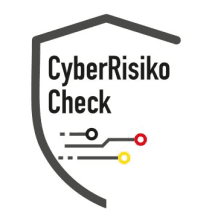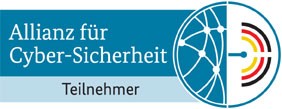Integrity as a guiding principle in a complex world
Integrity is a term that plays a central role in many areas of life. It stands not only for moral integrity but also for the consistent adherence to ethical principles – both in personal and professional contexts. In a time when authenticity and trust are becoming increasingly important, it is essential to engage with the true meaning of integrity and to understand how it serves as a foundation for a just and reliable society.
What exactly does integrity mean? At its core, integrity describes sticking to moral values, even when external circumstances or temptations may lead one away from these principles. It is an inner commitment to honesty, transparency, and accountability. It is not only the individual character that plays a role but also the social environment in which people make decisions. Integrity is an ongoing process that requires continuous self-reflection and the willingness to always act according to the highest ethical standards.
W-Questions about integrity:
- What does integrity mean in everyday life?
- Why is integrity a central value in interpersonal communication?
- How can one maintain integrity in difficult situations?
- What role does integrity play in the professional environment?
- Who benefits from integral behavior?
Historical and philosophical perspectives
The roots of the concept of integrity can be found in various philosophical and religious traditions. Even in ancient cultures, the term was associated with virtue and moral perfection. Philosophers like Aristotle emphasized early on the importance of a unified and morally grounded character. Numerous teachings in the major world religions, such as Christianity, Islam, or Buddhism, stress the value of integrity and sincerity. In these traditions, integrity is often seen as a foundation for spiritual growth and a harmonious community.
Throughout history, integrity has consistently been viewed as an essential element of a functioning society. Civic virtues based on honesty and fairness contribute to establishing trust between individuals and within institutions. This trust is crucial for the smooth functioning of social, economic, and political systems. Without integrity, societal structures can quickly collapse, as the foundation of mutual respect and reliability is lost.
Integrity in personal life
On a personal level, integrity means staying true to oneself and consistently following one's beliefs, values, and ideals. It is about doing the right thing even when no one is watching or when short-term gain is tempting. This behavior requires courage and steadfastness, as it often carries disadvantages when one opposes popular trends or short-term interests.
An example of integral action in everyday life is the willingness to take responsibility for one's own mistakes. People who live with integrity often demonstrate a high level of loyalty and credibility even in difficult situations. They are willing to speak uncomfortable truths when it comes to upholding ethical standards – even when this contradicts personal interests. This attitude can lead to a deep inner peace because one lives in accordance with their values and does not feel guilt or dishonesty.
In interpersonal dealings, integrity is of central importance: it builds trust and forms the basis for lasting relationships. Whether in personal settings or in professional life, people perceived as integral enjoy high esteem and respect. Their behavior inspires others and fosters a culture where openness and honesty are regarded as the highest values. Through authentic actions, conflicts can often be avoided or resolved constructively, as clear values and principles pave the way for communication.
Integrity in a professional context
In the workplace, integrity is also an indispensable factor. Companies that foster a culture of integrity benefit in the long run from a strong reputation and a solid trust relationship with customers, partners, and employees. Integrity in business manifests, for example, in transparent communication, compliance with legal regulations, and fair treatment of all parties involved. Employees working in an integral company often develop a stronger identification with their work and contribute actively to the company's success.
Many leaders emphasize that integrity in management is a critical success factor. Decision-makers who act ethically and justify their decisions clearly create an environment in which innovation and teamwork can thrive. Integrity-based leadership promotes not only the individual well-being of employees but also the long-term success of the organization. Especially in times of crisis, a high level of integrity proves to be a stabilizing force that offers orientation and trust.
Practical approaches to promoting integrity
The question of how to promote and live integrity in everyday life occupies many people. There are numerous approaches and methods to develop and solidify an integral lifestyle. Below are some practical strategies that can help make integrity a central part of one’s life:
Self-reflection and mindfulness: Regular self-reflection can help clarify one’s values and beliefs. Those who are aware of their personal ethics find it easier to choose the right path in challenging situations. Mindfulness and meditation can also sharpen the inner voice so that intuitive decisions are more aligned with one’s values.
Open communication: An open exchange about values and expectations – both in personal and professional environments – creates transparency. When all parties present their viewpoints clearly and honestly, misunderstandings can be avoided and common goals can be pursued more effectively.
Role modeling and mentorship: People should frequently look to role models who exemplify integrity. Having mentors who offer advice and support in difficult times can be helpful. By orienting themselves to the experiences of others, one can more easily navigate their ethical challenges.
Continuous learning: Acquiring knowledge about ethical issues and moral theories can contribute to a deeper understanding of integrity. Literature, seminars, and workshops provide valuable insights into how to make ethically grounded decisions and strengthen one’s personal integrity.
Authenticity and self-acceptance: Integrity begins with accepting oneself. A realistic self-image and understanding one's strengths and weaknesses allow for authentic action. Instead of adhering to external standards, one should utilize their internal compass as a guideline.
The challenges in a globalized society
In a world where economic competition, cultural diversity, and technological advancements are constantly increasing, so too are the demands for integrative actions growing more complex. Globalization brings both new opportunities and challenges. Different cultures and value systems collide, and what is considered an integral style of action in one context may differ in another.
This dynamic requires a high level of intercultural competence and the willingness to look beyond one’s own perspective. Companies and individuals operating in a global environment should therefore learn to consistently uphold their ethical principles even in ambiguous situations. It is helpful to orient oneself to international standards and guidelines that emphasize the value of integrity and can serve as a common foundation.
Technology and integrity
Another aspect that is gaining increasing relevance today is the role of technology in upholding integrity. Digital communication, social media, and automated decision-making present new challenges for ethical behavior. Fake news, data breaches, and algorithmic bias are issues that highlight the importance of maintaining ethical principles even within technological contexts.
Here, the goal is to establish ethical standards for dealing with digital media. Responsible companies invest in transparent processes and emphasize regular exchange with experts and the public. This is the only way to ensure that integrity does not fade into the background in the digital age. For individuals, this means continuously educating themselves to realistically assess the risks and opportunities of the digital world.
The importance of integrity in times of crisis
Integrity proves to be particularly important in times of uncertainty and crises. Whether in economic, political, or social challenges – those who uphold their integrity...
Integrity in Germany: Current Developments
The importance of integrity in Germany is continuously growing. According to recent studies by the Federal Office for Information Security (BSI), German companies are increasingly affected by cyber threats. The Bitkom Association reports that 84% of German companies have fallen victim to cyber attacks in the last two years.
Especially in the area of integrity, the following trends are evident:
Increased investments in preventive security measures
Increased awareness of comprehensive security concepts
Integration of integrity into existing compliance frameworks
EU Compliance and Integrity
With the introduction of the NIS2 directive and stricter GDPR requirements, German companies must adapt their security strategies. Integrity plays a central role in meeting regulatory requirements.
Important compliance aspects:
Documentation of security measures
Regular review and updates
Proof of effectiveness to regulatory authorities
Practical implementation in corporate everyday life
The integration of integrity into corporate daily life requires a structured approach. Experience shows that companies benefit from a step-by-step implementation that takes both technical and organizational aspects into account.
Think of integrity as insurance for your company: The better prepared you are, the lower the risk of damage from security incidents.
Further Security Measures
For a comprehensive security strategy, you should combine integrity with other security measures:
Vulnerability Management - Systematic vulnerability management
Penetration Testing - Comprehensive security testing
Security Hardening - Employee awareness
Incident Response Plan - Preparation for security incidents
Conclusion and Next Steps
Integrity is an essential building block of modern cybersecurity. Investing in professional integrity measures pays off in the long run through increased security and compliance conformity.
Do you want to optimize your security strategy? Our experts are happy to advise you on implementing integrity and other security measures. Contact us for a non-binding initial consultation.
🔒 Act now: Have your current security situation assessed by our experts
📞 Request a consultation: Schedule a free initial consultation on integrity
📋 Compliance Check: Review your current compliance situation
📌 Related Topics: Cybersecurity, IT security, compliance management, risk assessment




